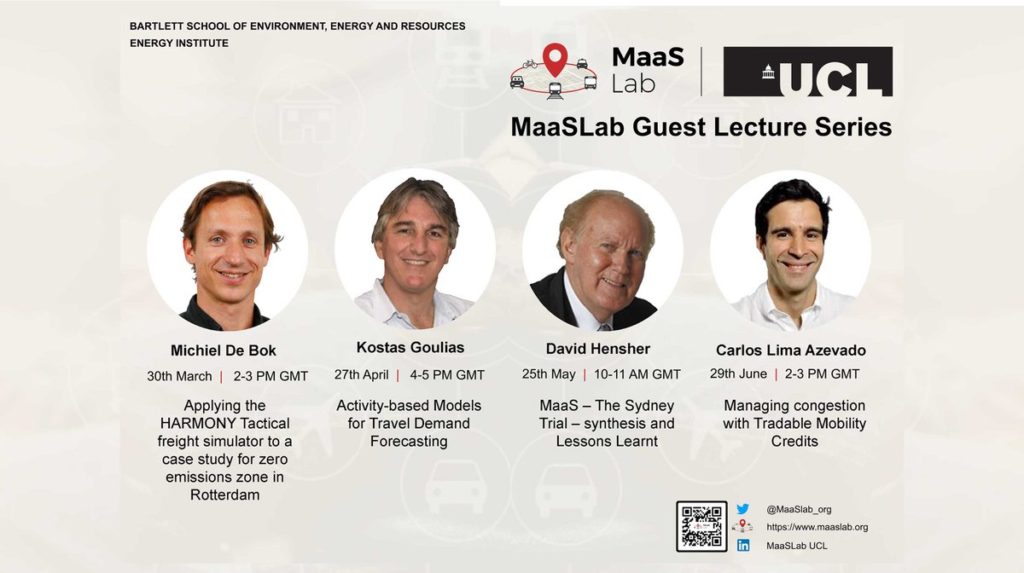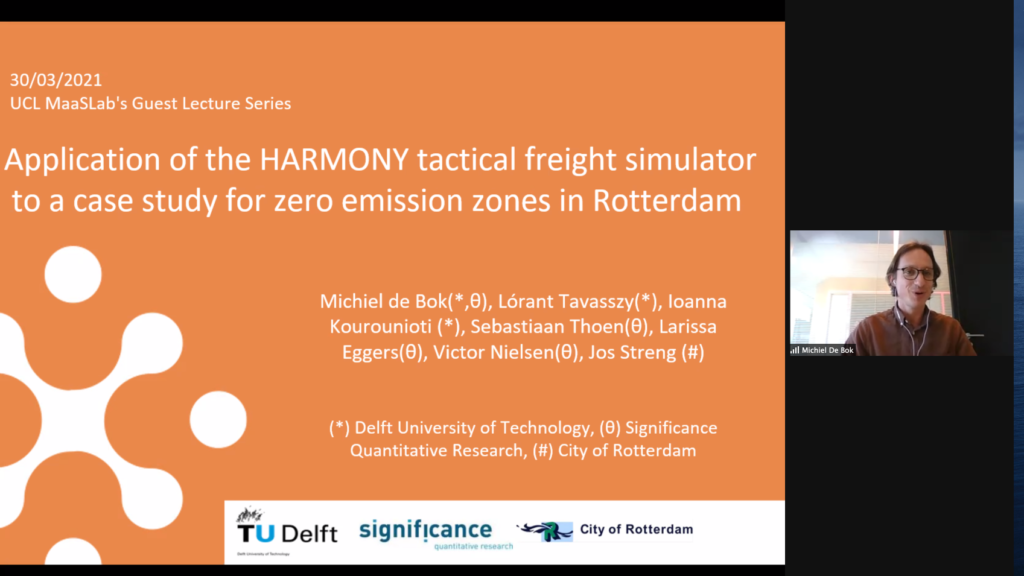HARMONY was presented during the UCL MaaSLab guest lecture “Applying the HARMONY Tactical freight simulator to a case study for zero-emissions zone in Rotterdam” on 30th March 2021.

What are the UCL MaaSLab guest lectures?
The UCL MaaSLab, coordinator of the HARMONY project, organised a series of free online guest lectures. Their main goal is to introduce leading researchers on state of the art issues. UCL MaaSLab hopes to help participants keep updated with ongoing research worldwide, especially in this time of COVID-induced social distancing.
How did HARMONY participate?

The first guest lecture was hosted by Michiel de Bok, research leader at Significance and researcher at TU Delft, two HARMONY partners. His presentation focused on the application of the tactical freight simulator in Rotterdam.
As part of a broader vision for emission-free city logistics, the city of Rotterdam plans to introduce a zero-emission zone in combination with urban consolidation centers (UCCs) at the outskirt of the city to generate a shift to zero-emission vehicles. For the design of this zero-emission zone many research questions arise that require a systematic analysis of the impacts of the transition scenarios on the freight demand patterns, the use and market shares of new (zero-emission) vehicles, and the impacts of truck flow and emissions. As a case study HARMOYN implemented heterogenous transition scenarios for each logistic segment into the Tactical Freight Simulator and analysed the system wide impacts. This model is multi-agent, empirical and shipment based and simulates long-term tactical choices (distribution channel choice, shipment size and vehicle type choice, sourcing) and short-term tactical choices (tour formation, delivery times).
Results shows that the impact of UCCs is not trivial: we can see a small increase in vehicle kilometers travelled (VKT) overall: +0.25% which can be attributed to the rerouting of shipments through the UCCs. Calculations confirm that emissions are reduced dramatically, by 90%, inside the Zero-Emission Zone. At the city scale this corresponds to a reduction of almost 10%, as most freight related traffic is generated by the port and involves long haul HGV transport that do not enter the city center. At a regional level the reduction of impacts is very small. More measures are needed if more ambitious reductions in emissions are to be achieved.
Interested in knowing more about our activities? Follow us on Twitter and Linkedin. You can also retrieve our presentations in our download page.